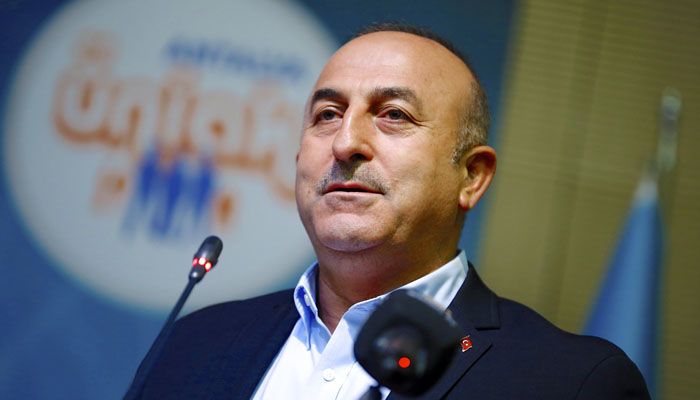Turkish Foreign Minister Mevlüt Çavuşoğlu has said public surveys show “yes” votes in a referendum to be held on April 16 on a constitutional reform package to be as high as 60 percent and that his personal estimate is that votes in favor of its passage will total around 63 percent of the electorate.
In January, Turkey’s Parliament passed the constitutional amendments later approved by Turkish President Recep Tayyip Erdoğan that would transform the political order into an executive-style presidential system, effectively widening the scope of powers of the position.
“There are public survey results showing the ‘yes’ vote at 56.58 and close to 60 percent. It will exceed 60 percent this week. I made an estimation earlier, which was 63 percent,” Çavuşoğlu said in the southern province of Antalya on Sunday.
The minister also said terror organizations are working for a “no” vote to emerge from the referendum.
“The nation sees this quite well, and it will hit the latest blow to the traitors on April 16,” said Çavuşoğlu.
The ruling Justice and Development Party (AKP), backed by the Nationalist Movement Party (MHP), pushed through the legislation that President Erdoğan says will bring the strong leadership needed to prevent a return of the fragile coalition governments of the past.
The Republican People’s Party (CHP) and pro-Kurdish Peoples’ Democratic Party (HDP) fear the reform will fuel authoritarianism.
Parliament’s approval paved the way for a nationwide referendum on the amendments, which would give the president, a traditionally more ceremonial role, the power to dismiss ministers and Parliament, issue decrees, declare emergency rule and appoint figures to key positions, including the judiciary.
It would also allow the president to be a member of a political party, which is currently prohibited under the constitution as the presidency is expected to exercise impartiality.

